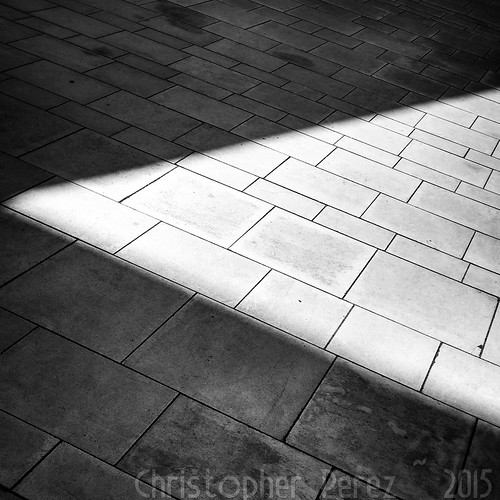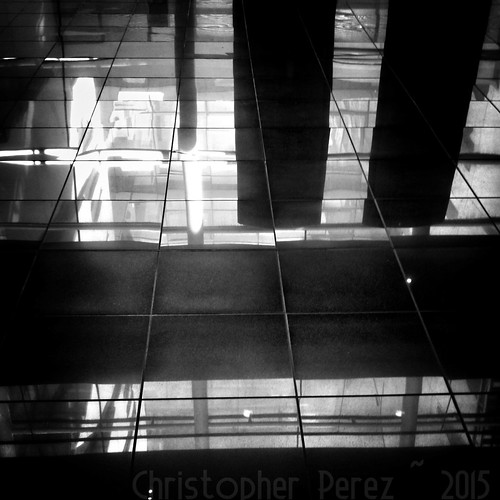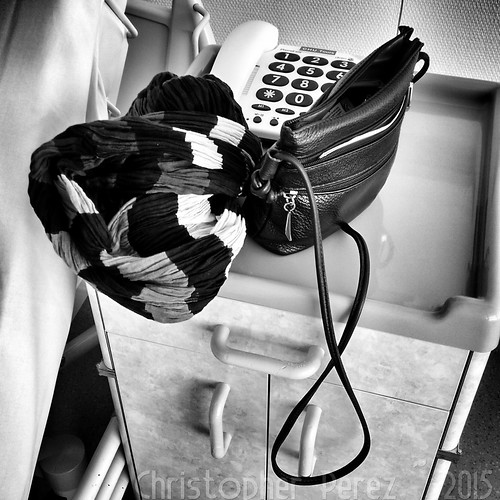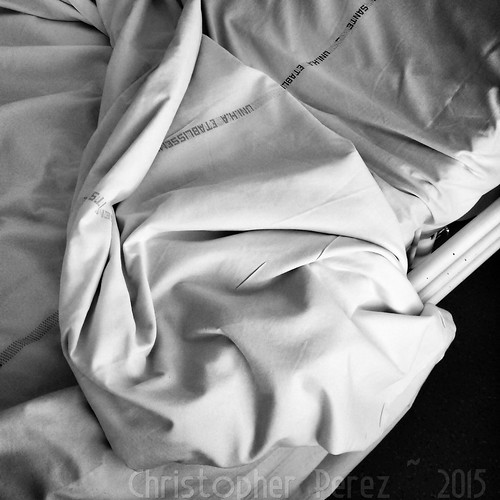The alarm was set for 06h00. I was to rise early to catch a 08h00 TGV au Mans. I was off to watch the Big Motorcycles run at the MotoGP Grand Prix de France.

06h00 - I'm out of bed and into the shower. The water is freezing cold.
06h30 - Now I'm freezing cold after a terrible attempt at showering. I check the fuse. It looks good. I check the fuse box. Hmmm. Somethings tripped. Reset the switch and "BANG", we're dark. The chauffe-eau has died.
06h45 - Email our proprietaires to let them know there's a problem.
07h15 - Breakfast finished. Wishing Jude "good luck" (after verifying that, yes, there was nothing to be done by me sticking around). Out the door to catch the metro to the TGV railhead.
Thus begins a rather long story of what it takes to get something fixed in this country.
One of my brothers explained it this way. In some countries you have 1st world, 2nd world, and 3rd world experiences all in the same place and at the same time. I am rather unhappy to put France on the list of such countries.
Le moins de Mai has not three (like I originally thought) but FOUR Four Day Weekends. When did our chauffe-eau die? Dans le moins de mai! Zut alors!!
All work slows to a crawl. No one is around to do anything. You can't get sick. The doctors are all out of town. You can't meet friends. They're all out of town. You can't have a Critical Component of Modern Daily Living die on you and expect it will be attended to in a quick manner. Technicians who manage Critical Components of Modern Daily Living are all out of town.
My father pointed out that if the chauffe-eau died in the US, the job would've been done the next day. Or if the part wasn't available, certainly the day after.
Here? Well. First you have to schedule a man to come take a look and gather the information on what is to be replaced.
Then you need to wait while the contract is written up.
Followed by a review of the contract and verification what all is correct (and not too expensive).
After which the signed contract is returned and the Date of Installation is, well, discussed.
To their credit, our proprietaires did an amazing job. They were responsive and concerned. They worked their French Magic as best they could. They pushed l'entreprise who was doing the work as hard as they could be pushed. Would couldn't wish for finer landlords.
While things were Thrashed Out, Jude and I heated water on the stove and hauled it into the shower. We'd then help eachother bathe. A splash here. A dunk there. A little scrubbing where needed.
We were like two little birds splashing about in a bird bath.
In the end, it took four hours to remove the dead chauffe-eau and to install the replacement. Pipes needed to be removed. The building water needed to be turned off (for a short time). New copper plumbing needed to be installed.
At one point we heard a lot of Heavy Work taking place. So I went to inspect and found two plombieres sweating and breathing hard. They'd just lowered the old chauffe-eau. It was exceedingly heavy. So I went out to inspect the replacement and found it rather light. I could easily move it around.
After a conversation with le chef plombiere I learned something rather interesting. What I learned was related to something Jude and I saw when we heated the water on the stove. If we brought the water to near boiling a surface of "scum" appeared. When we first saw it I suggested that it was calcium coming out of suspension. Without fully realizing the implications of this we tried to bring our water to something less than a boil.
Le chef plombier asked what the temperature was set to in the old chauffe-eau. "Plus de soixante degree" I replied. "C'est ca, alors." Our old chauffe-eau's thermostat was set so high that it was bringing calcium out of suspension and depositing it in the ballon of the old system.
I knew, but, again, didn't full appreciate the long term impacts, that Paris' water runs over and through ancient limestone deposits. You can get a sense of this by descending into the Catacombs. All you see are limestone walls, steps, paths, ceilings. That is where the calcium is coming from. The old rock-bed that Paris sits on is limestone.
Le chef plombier and I talked about what the new chauffe-eau should be set to. We agreed that 50degrees centigrade was about right. This temperature would be warm enough to be comfortable and cool enough to avoid calcium build-up.
After a few hours of heating Jude took her first hot shower in eleven days. I took mine a few hours later.
It was good to rejoin Modern Civilization.

06h00 - I'm out of bed and into the shower. The water is freezing cold.
06h30 - Now I'm freezing cold after a terrible attempt at showering. I check the fuse. It looks good. I check the fuse box. Hmmm. Somethings tripped. Reset the switch and "BANG", we're dark. The chauffe-eau has died.
06h45 - Email our proprietaires to let them know there's a problem.
07h15 - Breakfast finished. Wishing Jude "good luck" (after verifying that, yes, there was nothing to be done by me sticking around). Out the door to catch the metro to the TGV railhead.
Thus begins a rather long story of what it takes to get something fixed in this country.
One of my brothers explained it this way. In some countries you have 1st world, 2nd world, and 3rd world experiences all in the same place and at the same time. I am rather unhappy to put France on the list of such countries.
Le moins de Mai has not three (like I originally thought) but FOUR Four Day Weekends. When did our chauffe-eau die? Dans le moins de mai! Zut alors!!
All work slows to a crawl. No one is around to do anything. You can't get sick. The doctors are all out of town. You can't meet friends. They're all out of town. You can't have a Critical Component of Modern Daily Living die on you and expect it will be attended to in a quick manner. Technicians who manage Critical Components of Modern Daily Living are all out of town.
My father pointed out that if the chauffe-eau died in the US, the job would've been done the next day. Or if the part wasn't available, certainly the day after.
Here? Well. First you have to schedule a man to come take a look and gather the information on what is to be replaced.
Then you need to wait while the contract is written up.
Followed by a review of the contract and verification what all is correct (and not too expensive).
After which the signed contract is returned and the Date of Installation is, well, discussed.
To their credit, our proprietaires did an amazing job. They were responsive and concerned. They worked their French Magic as best they could. They pushed l'entreprise who was doing the work as hard as they could be pushed. Would couldn't wish for finer landlords.
While things were Thrashed Out, Jude and I heated water on the stove and hauled it into the shower. We'd then help eachother bathe. A splash here. A dunk there. A little scrubbing where needed.
We were like two little birds splashing about in a bird bath.
In the end, it took four hours to remove the dead chauffe-eau and to install the replacement. Pipes needed to be removed. The building water needed to be turned off (for a short time). New copper plumbing needed to be installed.
At one point we heard a lot of Heavy Work taking place. So I went to inspect and found two plombieres sweating and breathing hard. They'd just lowered the old chauffe-eau. It was exceedingly heavy. So I went out to inspect the replacement and found it rather light. I could easily move it around.
After a conversation with le chef plombiere I learned something rather interesting. What I learned was related to something Jude and I saw when we heated the water on the stove. If we brought the water to near boiling a surface of "scum" appeared. When we first saw it I suggested that it was calcium coming out of suspension. Without fully realizing the implications of this we tried to bring our water to something less than a boil.
Le chef plombier asked what the temperature was set to in the old chauffe-eau. "Plus de soixante degree" I replied. "C'est ca, alors." Our old chauffe-eau's thermostat was set so high that it was bringing calcium out of suspension and depositing it in the ballon of the old system.
I knew, but, again, didn't full appreciate the long term impacts, that Paris' water runs over and through ancient limestone deposits. You can get a sense of this by descending into the Catacombs. All you see are limestone walls, steps, paths, ceilings. That is where the calcium is coming from. The old rock-bed that Paris sits on is limestone.
Le chef plombier and I talked about what the new chauffe-eau should be set to. We agreed that 50degrees centigrade was about right. This temperature would be warm enough to be comfortable and cool enough to avoid calcium build-up.
After a few hours of heating Jude took her first hot shower in eleven days. I took mine a few hours later.
It was good to rejoin Modern Civilization.










